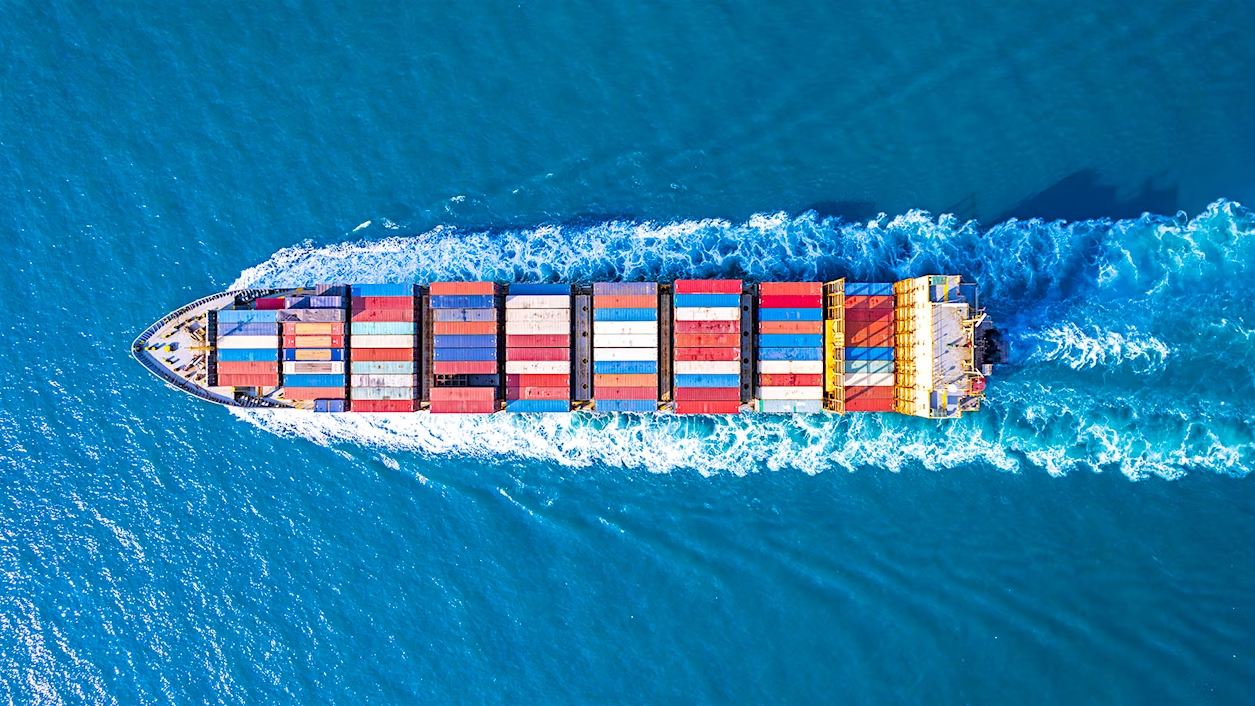The imposition of tariffs on imported wines has significant implications for the American wine industry, greatly affecting both importers and consumers. Tariffs, essentially taxes placed on imported goods, lead to increased expenses for wine importers. These heightened costs are typically passed on to consumers in the form of higher retail prices, thus diminishing the affordability of diverse wine selections. This cascading effect underscores the interconnectedness of domestic and international markets in the wine trade, revealing how actions taken by governments can reverberate throughout supply chains.
Furthermore, tariffs do not merely inflate prices but often disrupt established trading relationships. American consumers, who previously enjoyed an expansive array of wines from different countries, may find their choices limited as importers grapple with reduced profit margins and unpredictable pricing. This can lead to a narrower selection on store shelves, diminishing the overall wine experience for connoisseurs and casual drinkers alike. The challenge is compounded for smaller wine merchants, who may lack the resources to absorb increased costs effectively.
Beyond consumer pricing and selection, the broader economic ramifications of such tariffs cannot be ignored. As importers struggle to maintain their market position, the potential for job losses in the wine sector arises. Positions in logistics, sales, and distribution are vulnerable as companies reevaluate their operational models in the face of tightened margins. A contraction in employment opportunities can lead to diminished economic activity in regions dependent on the wine industry, ultimately affecting local economies.
In light of these factors, it becomes evident that tariffs can disrupt not only the wine trade but also the fabric of the American economy. By understanding these dynamics, stakeholders can better navigate the challenges posed by tariffs and advocate for policies that support a thriving wine market.
The Position of Wine Merchants and Industry Experts
The impact of tariffs on the American wine industry has garnered considerable attention from various wine merchants and industry experts. Many of these professionals have expressed deep concerns regarding the implications of increased tariffs on imported wines, emphasizing the adverse effects on pricing and market accessibility. According to a report published by the Wine and Spirits Wholesalers of America, tariffs have exacerbated the cost of purchasing foreign wines, which can directly translate to higher retail prices for consumers. This price increase could lead to a decline in demand for imported wines, a shift that appears to favor domestic producers over international ones.
Furthermore, numerous testimonials from small wine merchants reveal a worrying trend. Several industry figures have illustrated how these tariffs may ultimately threaten the viability of their businesses. Smaller enterprises, which often lack the financial cushion to absorb rising costs, face the harsh reality of reduced inventory options and diminishing profit margins. A notable wine merchant from California stated that the implementation of tariffs has made it increasingly difficult to maintain diverse offerings, which is critical to attracting and retaining customers in a competitive market.
The consensus among industry experts highlights the importance of foreign wines not only for consumer choice but for the overall health of the American wine market. They argue that an enriching tapestry of international offerings fosters a vibrant wine culture, ultimately benefiting all stakeholders involved. Critics of the current tariff policies assert that protecting domestic producers at the expense of international relationships and small businesses may lead to a contraction of the market. As the challenges imposed by these trade policies continue to mount, the concern is palpable regarding the sustainability of the wine sector, which plays a vital role in the broader economic landscape.
Political Landscape: Trump’s Response to Tariffs and Trade Policies
Donald Trump’s administration brought significant shifts in U.S. trade policy, particularly through the implementation of tariffs on various imports, including wine. During his tenure, Trump often emphasized the need for America-first policies, arguing that tariffs would protect American industries from foreign competition. This stance sparked considerable debate and criticism, especially within the wine industry, which has felt the impact of retaliatory tariffs imposed by other countries in response to U.S. tariffs.
Historically, Trump has made statements indicating that he supports tariffs as a mechanism to foster better trade deals and protect American jobs. However, the wine merchants have expressed concerns about the adverse effects of these tariffs on their businesses and the overall consumer market. Import tariffs can lead to increased prices for consumers and potentially decrease the variety of wines available in the U.S. market, which could adversely impact consumers who enjoy imported wines.
Despite the clear implications of tariffs on the wine industry, Trump’s administration appeared to prioritize political motivations over economic realities. Supporters of the tariffs often argue that they are necessary for national security and economic independence. On the other hand, critics argue that the negative consequences, such as increased prices and reduced variety, could undermine the very economic stability these tariffs purportedly aim to achieve.
As the political landscape evolves, it remains uncertain whether Trump will adjust his approach to trade policies with regard to the wine industry. The potential for future tariffs and trade negotiations may hinge not only on economic factors but also on Trump’s political calculations concerning his base of support. In this environment of division, the juxtaposition of varying perspectives continues to create challenges for American wine merchants while also influencing consumer choices and behaviors.
Potential Solutions and Future Outlook for American Wine Consumers
The imposition of tariffs on wine has created considerable challenges for American consumers and merchants alike. However, there are potential solutions that could alleviate these negative impacts. Firstly, policy reforms aimed at reducing tariffs will be essential. Lawmakers can work towards negotiating more favorable trade agreements that prioritize the interests of domestic consumers and wineries. Such initiatives would require collaboration between government officials and industry stakeholders to ensure that the wine market remains vibrant and accessible.
In addition to policy reforms, advocacy efforts from the wine industry play a crucial role in addressing tariff-related concerns. Wine associations and trade organizations can mobilize to educate lawmakers about the economic repercussions tariffs bring, not only to importers but also to consumers who face increased prices. These organizations can lobby for legislative actions that aim to lower or eliminate these tariffs, ensuring that American wine drinkers can enjoy a diverse selection at reasonable prices.
Consumer activism can also be a powerful tool in influencing change. By voicing their concerns and preferences, consumers can pressure policymakers to reconsider existing tariff structures. This advocacy can take the form of petitions, social media campaigns, and participation in local wine events that raise awareness about the complexities of wine tariffs. Consumers can champion small, local wineries directly affected by tariffs, thereby encouraging a shift in public opinion towards more favorable trade practices.
The future outlook for the U.S. wine market largely depends on the evolution of tariff policies. If current tariffs remain in place, American consumers may encounter higher prices and limited choices. However, if tariffs are lifted or significantly reduced, the market could witness an influx of international wines, providing consumers with a broader array of options and potentially stabilizing prices. The path forward hinges on active engagement from both the industry and consumers striving for a more equitable wine market that benefits all stakeholders.










Interesting read! But arent tariffs essentially just another form of taxation on the consumer? Thoughts?
Absolutely! Tariffs are just a sly way for governments to pick consumer pockets. Its a masked tax!
Tariffs on wine surely hit our wallets hard, but has anyone considered how they impact the quality of wines we get?
Trumps tariff dance is a sour note for us vino lovers. Any thoughts on how consumers can weather this corked policy storm?
Guys, dont you think Trump should be more open to understanding how these tariffs are hurting our own wine industry?
Perhaps Trumps focus is more on negotiating better trade deals, not babysitting industries.
Interesting read, but dont we think tariffs may force local wine industries to up their game? Just a thought.
Tariffs on wine? Big deal! When will they tackle domestic beer prices?
Trumps tariff decisions seem oblivious to American wine merchants struggles. Are there any viable solutions to mitigate this impact?
Tariffs are tools, not problems. Wine merchants need to innovate and adapt, not just complain.
Hmm, arent tariffs supposed to protect local businesses? Yet wine merchants seem to disagree. Is Trump really listening? Thoughts?
Trump listens to the loudest voices, not necessarily the most affected ones. Tariffs are a double-edged sword.
Interesting read! But wonder if Trumps tariff strategies were more about global politics than economic impact on wine lovers? 🤔
Perhaps global politics and wine lovers wallets arent mutually exclusive. Trumps tariffs impacted both! 🍷🌐
Are tariffs really the issue or is it just poor trade policies?
While I agree tariffs harm us, isnt the real question whether Trumps trade policies will eventually benefit us long-term?
Interesting article, but isnt the point moot? Trumps out now. Maybe lets focus on Bidens trade policies.
Interesting read. Still wondering though, if tariffs are so damaging, why isnt Trump addressing this? Any insights people?
So, are wine tariffs just Trumps sour grapes or is it a genuine attempt to balance trade? Tough call, folks!
Does Trump even realize the tariffs are turning our beloved wine into a luxury item? Just doesnt seem fair to consumers.
Fair or not, tariffs are part of trade wars. Wines luxury, not a necessity.
Trumps tariff actions no doubt hit the wine industry hard. Cant he see the damage rather than just the dollar signs?
Tariffs do harm, but will Trump ever realize that? Doubtful.
Trumps response to tariffs? All political showmanship! Wine merchants are just collateral damage. Is there a real solution in sight?
Trumps tariff policies surely sting, but are wine merchants ignoring potential domestic growth opportunities? Thoughts?
Trumps policies might sting, but maybe its time wine merchants stop whining and start strategizing.
Tariffs indeed hurt, but does Trump even consider the wine industry?
Trump considers all industries, not just the wine. His actions aim at long-term gains.
Trumps tariff policies are hurting us wine lovers, no doubt. But does he even care about our fine taste for wine?
Tariffs sure hurt us wine-lovers, but isnt Trumps aim to protect local industries? Will it really affect our local vineyards?
Trumps aim might be protection, but local vineyards often rely on global trade too. Its a double-edged sword.
Does Trump even realize the ripple effect his tariffs are having on our beloved wine industry? Its not rocket science, man!
Ever considered how those tariffs are bringing back jobs to our forgotten industries? Food for thought.
Interesting read. Do you think Trump even sips wine? Because tariffs are sure leaving a bitter taste for us consumers!
Despite tariffs, why cant wine merchants explore domestic alternatives? Trump might not control the global trade, but we control our local choices.
Because theyre wine merchants, not miracle workers. Not everything grows everywhere.
Tariffs damaging our beloved wine industry, will Trump ever take notice?!
Trumps tariff tactics could really cork us wine lovers, huh?
Tariffs on wine? Trump probably just sees it as a grape problem!
Trumps tariffs, a double-edged sword indeed! Any thoughts on future solutions?
Tariffs sure sting, but is Trump really listening to wine merchants?
Tariffs on wine, really Trump? Is this a joke to you?
Tariffs on wine, Trumps oversight or calculated move? Discuss!